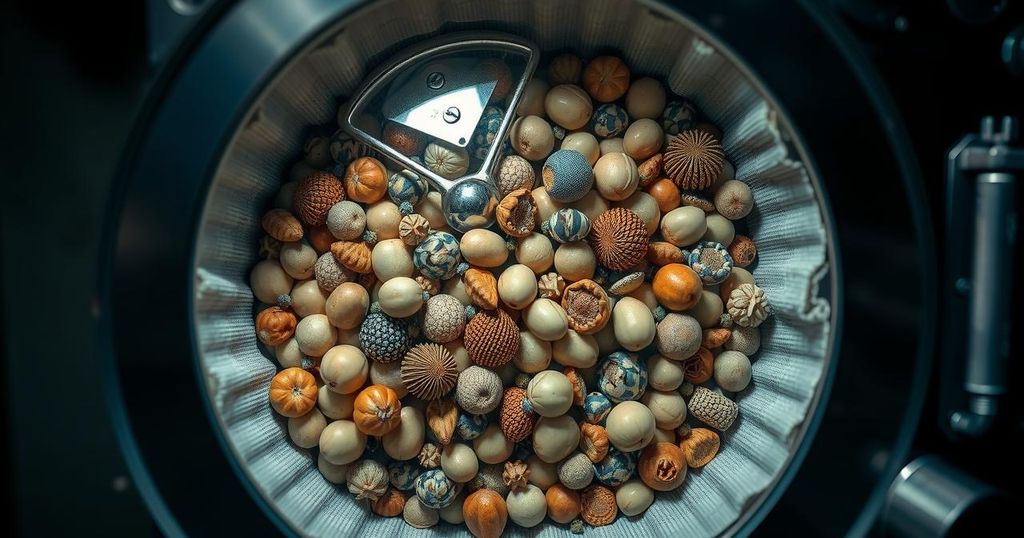A recent deposit of thousands of seeds, including 21 Palestinian species, was made to the Global Seed Vault in the Arctic, which protects plant diversity threatened by global crises. Over 30,000 samples were added from various nations, emphasizing the need for agricultural preservation amid conflict and climate change, as stated by Crop Trust officials.
A significant contribution to the Global Seed Vault in the Arctic has recently occurred, with a new addition of thousands of seed samples, including a collection from Palestine amidst ongoing conflict and food shortages in Gaza. Since its inauguration in 2008, the Global Seed Vault, located within Norway’s Svalbard archipelago, has served as a crucial backup repository for the world’s agricultural diversity, aimed at providing protection against natural disasters, wars, climate change, and other crises affecting food security. On a recent Tuesday, the Crop Trust announced that over 30,000 seed samples from 23 organizations across 21 nations were deposited into the vault. This particular facility, often referred to as the “Noah’s Ark” of food crops, houses approximately 1.3 million varieties of seeds, safeguarded in three cold chambers deep within a mountain. The inclusion of 21 Palestinian plant species, such as vegetables, millet, and herbs, was facilitated by the Palestinian Union of Agricultural Work Committees (UAWC). The Crop Trust has indicated that similar deposits from conflict-stricken regions are anticipated, including a delivery from Sudan planned for February. The urgency of securing seed diversity has been emphasized by Crop Trust director Stefan Schmitz, who noted, “Climate change and conflict threaten infrastructure and impact food security for over 700 million people in more than 75 countries worldwide.” The vault’s design strategically situates it away from areas of armed conflict, and its elevation is intended to protect against the ramifications of climate change, such as rising sea levels. Even in the event of a failure in its refrigeration systems, the vault’s surrounding permafrost could maintain the required low temperatures necessary for seed preservation.
The Global Seed Vault, inaugurated in 2008, is a critical facility designed to preserve the genetic diversity of the world’s food supply. It aims to safeguard seeds from catastrophic events that could destroy agricultural resources, including natural disasters, conflicts, and climate change. The facility is strategically located near Longyearbyen on Spitsbergen Island, well away from conflict zones and at an altitude that presumably secures it from rising sea levels. By maintaining a stock of seeds, the vault also provides a necessary resource for future food security and agricultural rehabilitation in areas impacted by disasters.
The recent deposit of Palestinian seeds into the Arctic Global Seed Vault highlights the ongoing global challenge of food security in the face of conflict and climate change. This initiative not only preserves critical agricultural biodiversity but also underscores the importance of international cooperation to maintain food stability in afflicted regions. As the Crop Trust continues to support genebanks, the vault stands as a testament to resilience and hope for future generations.
Original Source: phys.org






